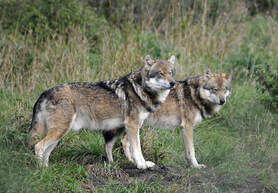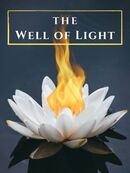January 2024 Newsletter
Peace, Vulnerability, & Humility
We are imprisoned in our small selves, thinking only of the comfortable conditions
for this small self, while we destroy our large self.
Thich Nhat Hanh, Being Peace
We are imprisoned in our small selves, thinking only of the comfortable conditions
for this small self, while we destroy our large self.
Thich Nhat Hanh, Being Peace

Dear Ones,
In my last newsletter, I wrote about cultivating inner peace and the relationship between inner and outer peace. (put link to last month’s newsletter) Sometimes, I write things, and Spirit says, “Oh yeah, let’s see what you do with this situation.” I wanted to share a personal process of finding inner peace with an outer conflict.
In my last newsletter, I wrote about cultivating inner peace and the relationship between inner and outer peace. (put link to last month’s newsletter) Sometimes, I write things, and Spirit says, “Oh yeah, let’s see what you do with this situation.” I wanted to share a personal process of finding inner peace with an outer conflict.

Recently, I ran into a former student from one of my integration circles. When I greeted him, he was quite upset, angrily mentioning I had ignored a text he had sent several months before inviting me to meet as friends. He then quickly left in his truck. I was very distressed by this encounter, went home, and decided to reach out via email, hoping to mend things by intending to cook a nice meal for him and share a heartfelt conversation. In the email, I apologized and wrote in what I considered a warm and friendly way, using phrasing I’d typically use with a close male friend. I wrote and suggested, “Why don’t you get your butt over to my house this week, and I will make you a nice lunch or dinner. Don’t be a pud!” using a term I thought was casual and lighthearted. I was Unaware of the true meaning of the word ‘pud’ –- it was something my best friend Nix called me when I was stubborn or resistant. When I didn’t receive a response, I followed up, expressing my desire to repair our relationship and show that I cared. Unfortunately, my attempts at reconciliation were met with anger in a series of enraged responses that followed, culminating in, “Please stay out of my life from this point on!

For several nights, sleep eluded me. I felt a need to defend myself, plagued by feeling unheard, unseen, and unfairly judged. Seeking solace and deeper understanding, I dedicated hours to meditation and practicing the ho'oponopono mantra (I’m sorry, please forgive me. Thank you. I love you.) I have discovered two ways of perceiving someone through my work and studies. One involves seeing them as “out there” as a separate object in time and space, where my experiences are a cognitive projection. The other perspective involves viewing them as a part of my nervous system, an integral part of my own being, interconnected as a real part of me. Exploring this inner view allows me to sense and feel physically and emotionally that person more deeply, revealing where there is a break in our connection from a more interactive and intra-connected perspective.
Empathy may be the single most important quality
that must be nurtured, to give peace a fighting chance.
Arundhati Roy
that must be nurtured, to give peace a fighting chance.
Arundhati Roy

I really opened my heart and senses to empathize with his perspective: I experienced his anger within my own body, as I felt both my anger, sense of failure, and disappointment. He seemed to believe our connection only existed when he paid for my services. (which, yes, people do) He felt abandoned because I hadn’t responded to his initial request and thought I was too demanding. (yes, I can see traits of my colonel father in me). He seemed to believe I was unaware, ‘clueless’ about my nature and shortcomings. (admittedly, I do have many blind spots.) He felt insulted, and I understand how that might have come across, albeit unintentionally. I imagined two five-year-olds squabbling over a toy, each feeling disregarded and judged. His reaction was likely the same as mine - feeling unheard, unseen, and judged. What was crystal clear to me was my genuine intention, but unfortunately, it seemed inconsequential because he was left feeling hurt. I was determined to mend the hurt I inadvertently caused, even if only in my nervous system. I saw my instinct was to want to defend myself and be right, but recognized that doing so would only create more separation and drive us further apart.
Vulnerability is our most accurate measure of courage.
Brené Brown
Brené Brown

Vulnerability: the willingness to show emotion or allow one's weaknesses to be seen or known; the willingness to risk being emotionally hurt.
As I sat meditating in the darkness, not knowing what to do with this situation, it occurred to me that I needed to feel my vulnerability and seek the learning and truth in what this other person saw if I was to be at peace with it. He may not be able to see my perspective, but I can do all I can to be vulnerable and authentic and feel the unwanted feelings. I need to feel the fear of what others might think of me without trying to justify, defend, or deny the other person’s experience. If I can love my humanity, then aren’t I loving humanity itself? Accepting my own imperfections increases my sense of belonging and connection to an imperfect world.
As I sat meditating in the darkness, not knowing what to do with this situation, it occurred to me that I needed to feel my vulnerability and seek the learning and truth in what this other person saw if I was to be at peace with it. He may not be able to see my perspective, but I can do all I can to be vulnerable and authentic and feel the unwanted feelings. I need to feel the fear of what others might think of me without trying to justify, defend, or deny the other person’s experience. If I can love my humanity, then aren’t I loving humanity itself? Accepting my own imperfections increases my sense of belonging and connection to an imperfect world.
Pride makes us artificial, and humility makes us real.
Thomas Merton
Thomas Merton

Humility: the feeling or attitude that you have no special importance that makes you better than others; lack of pride.
From this encounter with my friend, I have learned how important it is to learn and practice humility. When I meditate and encounter the vast, spacious, eternal stillness from my meditation practice, my heart slows down and opens like a flower opening to the sun. Humility comes from the root humus, the dark, organic material that forms into soil when plant and animal matter decays. It makes me think of the mystical tradition of bowing down to the mystery and the source of life, honoring the earth from which we came. I don’t know if my friend will ever forgive me. But I am grateful for the lessons he taught me.
I share this personal story with you in the hopes that where there is separation, alienation, or blame, you will join me in practicing peace, vulnerability, and humility to bring more harmony, compassion, and understanding into your life and the world. We are microcosms of the collective, and if we can’t repair the separation in our own lives, how will we ever find peace in the world? Peace is an inside job. Many of you are familiar with the Cherokee parable of the two wolves (if not, see below). It reminds us of how important it is to pay attention to what we feed our emotional, physical, and mental selves.
Let's recognize the larger self in our small self and the smaller self in the larger self we call humanity.
In love and partnership,
Michael and the Well of Light Team
From this encounter with my friend, I have learned how important it is to learn and practice humility. When I meditate and encounter the vast, spacious, eternal stillness from my meditation practice, my heart slows down and opens like a flower opening to the sun. Humility comes from the root humus, the dark, organic material that forms into soil when plant and animal matter decays. It makes me think of the mystical tradition of bowing down to the mystery and the source of life, honoring the earth from which we came. I don’t know if my friend will ever forgive me. But I am grateful for the lessons he taught me.
I share this personal story with you in the hopes that where there is separation, alienation, or blame, you will join me in practicing peace, vulnerability, and humility to bring more harmony, compassion, and understanding into your life and the world. We are microcosms of the collective, and if we can’t repair the separation in our own lives, how will we ever find peace in the world? Peace is an inside job. Many of you are familiar with the Cherokee parable of the two wolves (if not, see below). It reminds us of how important it is to pay attention to what we feed our emotional, physical, and mental selves.
Let's recognize the larger self in our small self and the smaller self in the larger self we call humanity.
In love and partnership,
Michael and the Well of Light Team
“If anyone tells you that a certain person speaks ill of you, do not make excuses about what is said of you but answer, "He was ignorant of my other faults, else he would not have mentioned these alone.
Epictetus
Epictetus
Story of the Two Wolves
An old Cherokee is teaching his grandson about life. “A fight is going on inside me,” he told the boy. “It is a terrible fight, and it is between two wolves. One is evil – he is anger, envy, sorrow, regret, greed, arrogance, self-pity, guilt, resentment, inferiority, lies, false pride, superiority, and ego.”
He continued, “The other is good – he is joy, peace, love, hope, serenity, humility, kindness, benevolence, empathy, generosity, truth, compassion, and faith. The same fight is happening inside you and every other person, too.”
The grandson thought about it briefly and then asked his grandfather, “Which wolf will win?”
The old Cherokee simply replied, “The one you feed.”
An old Cherokee is teaching his grandson about life. “A fight is going on inside me,” he told the boy. “It is a terrible fight, and it is between two wolves. One is evil – he is anger, envy, sorrow, regret, greed, arrogance, self-pity, guilt, resentment, inferiority, lies, false pride, superiority, and ego.”
He continued, “The other is good – he is joy, peace, love, hope, serenity, humility, kindness, benevolence, empathy, generosity, truth, compassion, and faith. The same fight is happening inside you and every other person, too.”
The grandson thought about it briefly and then asked his grandfather, “Which wolf will win?”
The old Cherokee simply replied, “The one you feed.”
